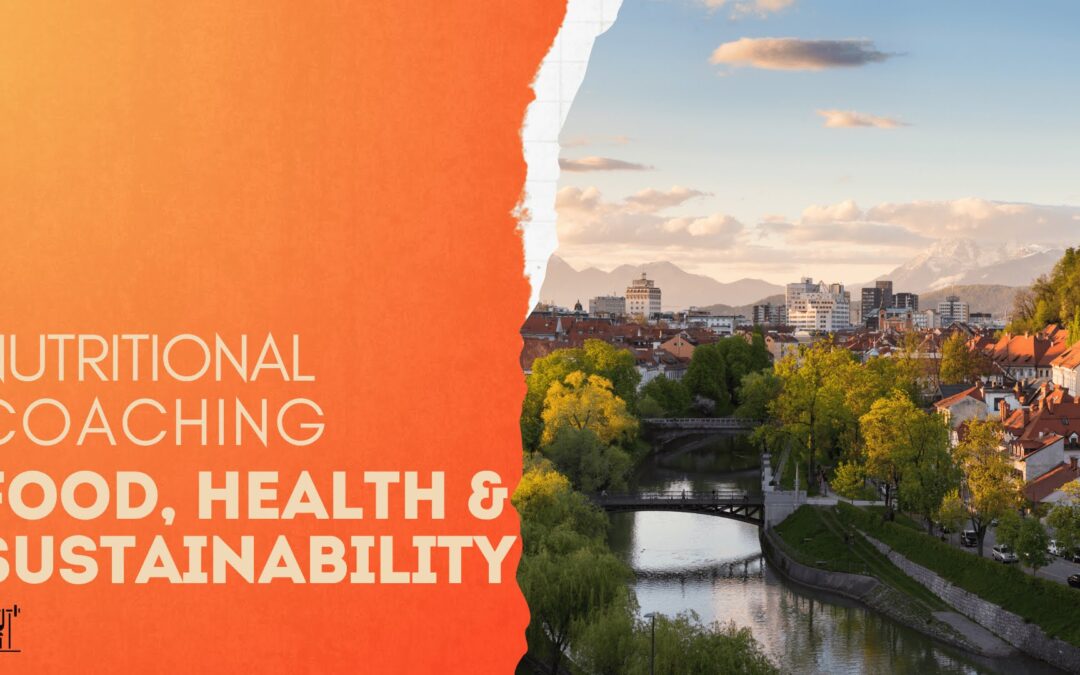Strength By Fitness
Sustainability, Our Habits & Nutritional Coaching Needs to Walk Hand in Hand. This is a 10-minute-read on Why that is.
Welcome to another fact-based coaching article from Strength by Fitness.
I have for the past two decades or so of talking, writing, and coaching about health, fitness, nutrition, and sustainability often been met with this fundamentally flawed question. “Why is sustainability an important metric to consider for nutritional coaching and our individual food choices”?
So, in this short-form article from Strength By Fitness I will answer that loud and clear. So here goes. This is why sustainability and nutritional coaching walk hand in hand, now, and forever, and why many more coaches and people need to embrace this fact-based and far more complete view of coaching, and thinking about our food habits.
Land use. Greenhouse emissions. Fresh-water usage. Crop death. Water, land & air pollution. Mammal extinction. human health outcomes. It all matter & it all say the same thing.
Think of Earth as an almost closed-off circular ecosystem with a finite capacity to handle annual pollution, natural resource drain, natural loss, and imbalances.
Now take roughly 9 billion humans and add our individual environmental impact together, and you are left with the cold, hard mathematical reason why human sustainability matters so immensely, even for all the people who don’t want to acknowledge this essential aspect of our shared reality.
Case A. Land per x amount of edible protein.
Beef requires roughly 20 times more land than nuts, and 35 times more than grains to produce the same amount of edible protein.
Yes, beef is a wonderful protein source from a quality point of view; there is no disputing that. So the conversation isn’t about which protein is better, on a solitary protein item level, beef is great. But so are eggs, chicken, fish, soybeans, peas, beans, and so are ultra-processed, higher-SPC foods such as soy-based vegan mince, and edamame spaghetti.
In other words, you will be able to reach the same protein quality, absorption, amino acid content, and resulting health and fitness outcomes with any well-planned plant-based food plan that provides enough protein in total, from a wide enough array of daily protein sources. And even as an omnivore, you should still not aim to eat only one food item meals. The human body needs a vast array of nutrients per meal and day. From the big macros, protein, carbs, and healthy fats, to fiber and micronutrients.
All these healthy nutrients provide meaningful value, and the better we are at mixing food items with lots of nutrients per unit of energy, the better our health outcomes.
Once that nutritionally rich, higher-SPC habits done, we are left at looking at the other food pillar, the planetary impact of those nutrients we are consuming.
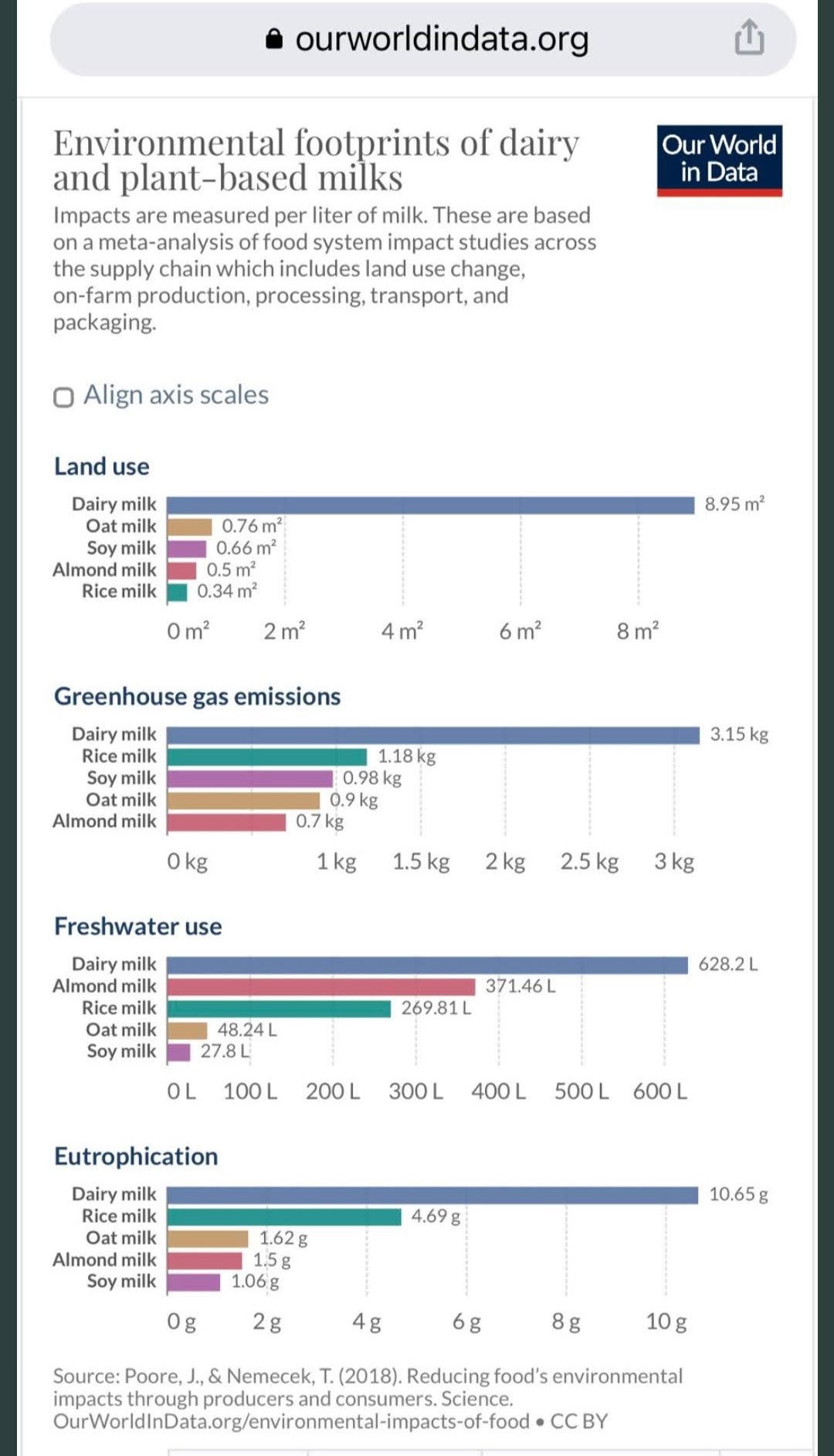
Case B, Cow milk vs Plant-based options.
Case B. Cow’s Milk vs Plant-based Options.
~24% of calories in a milk cow’s feed end up as the nutrition you eventually consume in the form of dairy. Consequently, 76% of the calories that are used in the production are wasted.
One liter of cow milk requires roughly 600+ liters of fresh water. Compare this with soy milk, which only needs 30L per liter of soy milk.
As for landmass. One liter of cow milk requires 9 m2 of land, while soy milk only needs 0.66 m2 of landmass, per liter of edible soy milk.
Is the math of sustainability and human health outcomes still not making sense?
Related Content
Obesity & Nutritional Deficiencis
Health & Planet. Omnivore vs Plant-based
Earth & You
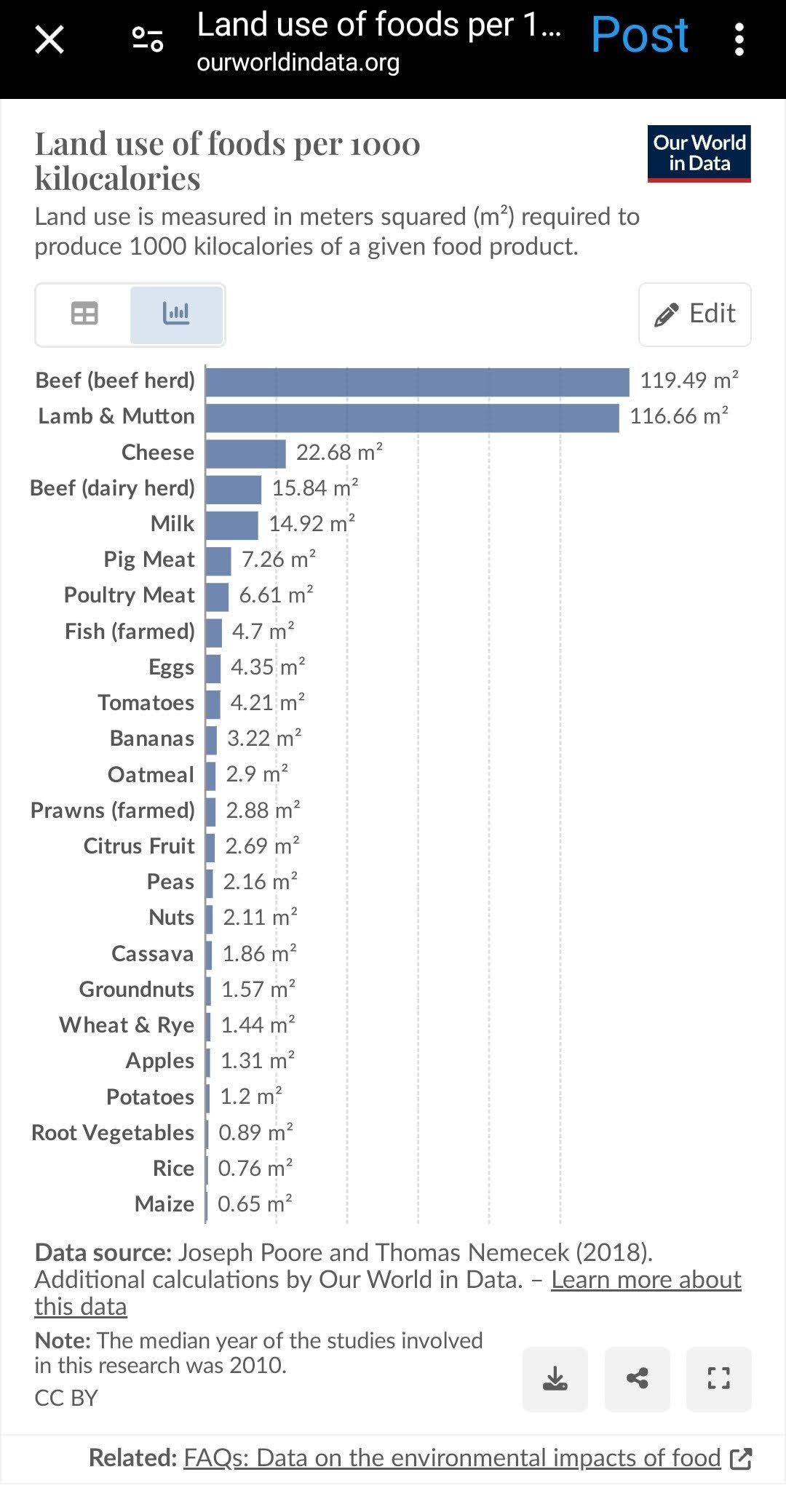

Case 3. When viewed as 1000 calories of human food.
It takes about 120 m2 to produce 1000 calories of edible food for human consumption when we talk about beef cattle. Peas, on the other hand, manage to provide that high-quality, nutritionally packed energy while only using 2.16 m2 of landmass. Talk about merging sustainability with a high nutritional content per unit of energy ( higher-SPC and planet-friendly is a winning combination for everybody ).
So, in the end, it does not matter if we look at it from a land mass perspective. Or if our concern is greenhouse emissions, freshwater usage, crop death, forest or land cleansing, wild mammals, or how much protein you get from various food sources, our impact on biodiversity, water, or air pollution, fossil fuel usage, fat loss, lean mass, or human health outcomes.
Sustainability matters not because of morals, but because of the cold, hard data that is reality.
The mathematics of feeding close to 9 billion people only with vastly inferior food ( from a sustainability perspective ) doesn’t work anymore.
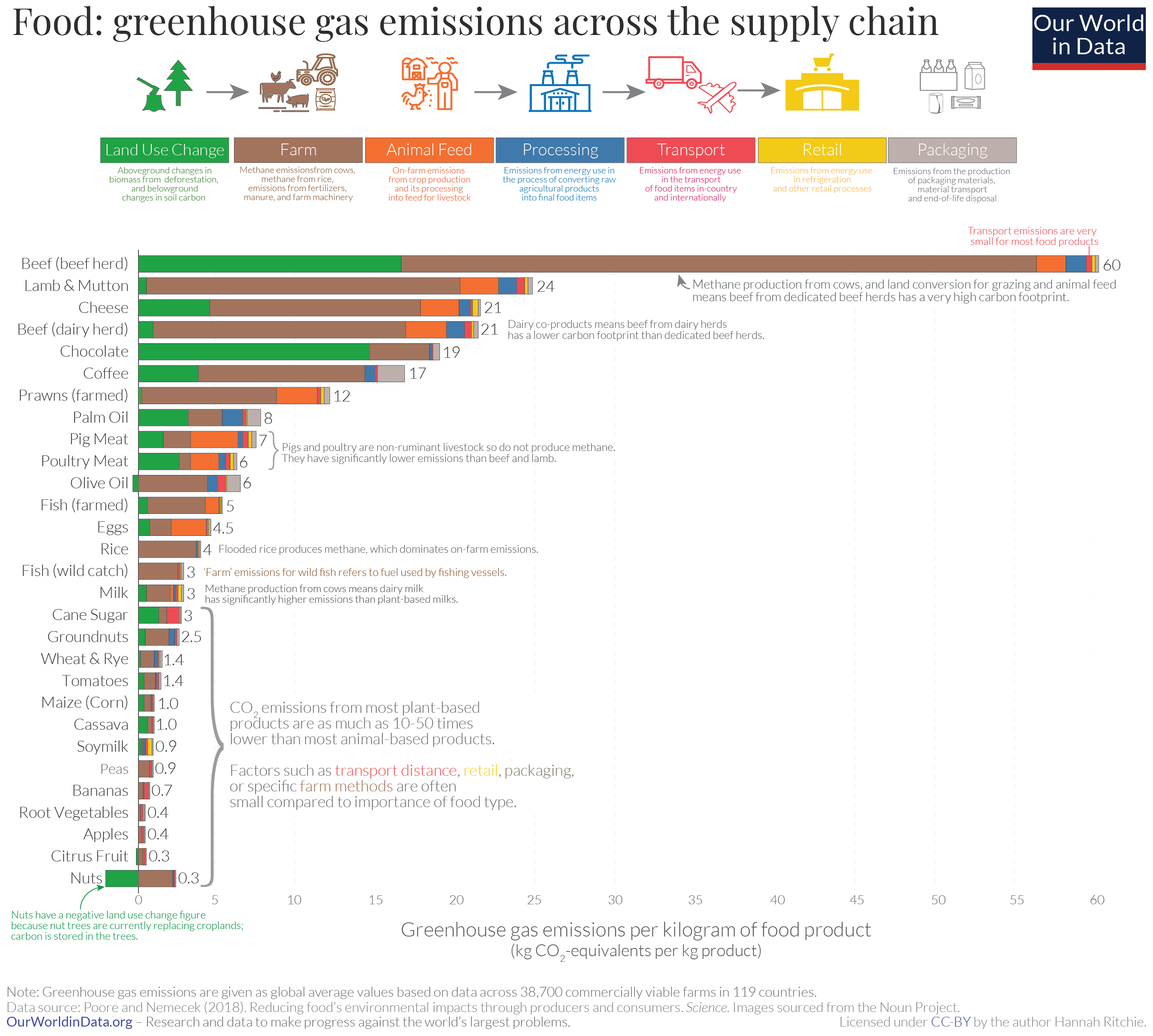
Best of all, while animal-based food choices can be perfectly healthy and nutritionally good food choices, such as eggs, fish, and chicken, the more plant-based foods we consume daily, the better our health outcomes across our entire health span.
Now, I am not saying that we can not consume or produce any animal-based foods at all. But what I am saying is that no matter your food or coaching preference, sustainability, our food choices & nutritional coaching need to go hand in hand.
Case in point, the total amount of land that is used worldwide for agriculture. Right now, humanity as a whole uses roughly 4.x billion ha of global land for agriculture.
If we shift globally to fish, eggs & whole plant-based foods, our need for agricultural landmass would shrink almost all the way down to 1 million ha while producing the same amount of nutrients for human consumption.
Talk about a massive difference and no drawbacks for human health, fitness outcomes, body composition, our planet, and its wildlife.
Best of all, that positive change would reverberate through all sustainability metrics, too, including human health outcomes.
Less land usage means substantially less pollution, wildlife decimation, old forest destruction, more meadows & pollinators, and a lot less natural resource drainage. All while providing better nutrition, climate change resilience, and reaping better human health outcomes.
Boom.
This coach-led, fact-based, high-quality education was completely free for this time :). And hopefully, over time, more nutritional coaches will start doing their job in a better and more complete way, too. Because sustainability and nutritional coaching need to walk hand in hand.
If you are wondering how plant-based and animal-based food choices stack up against our health and fitness progression, and how it all merge together with our nutritionally rich, higher-SPC food approach jump on over to our other articles here on Strength By Fitness.
Strength By Fitness master coach Mike has been covering fact-based nutrition, health, and fitness in length for the past 15 years and lived a healthy fit life for more than double that, and yes, we also coach people online as well as in-person, get in touch if you need our unlimited online coaching help or in-person guidance and help.
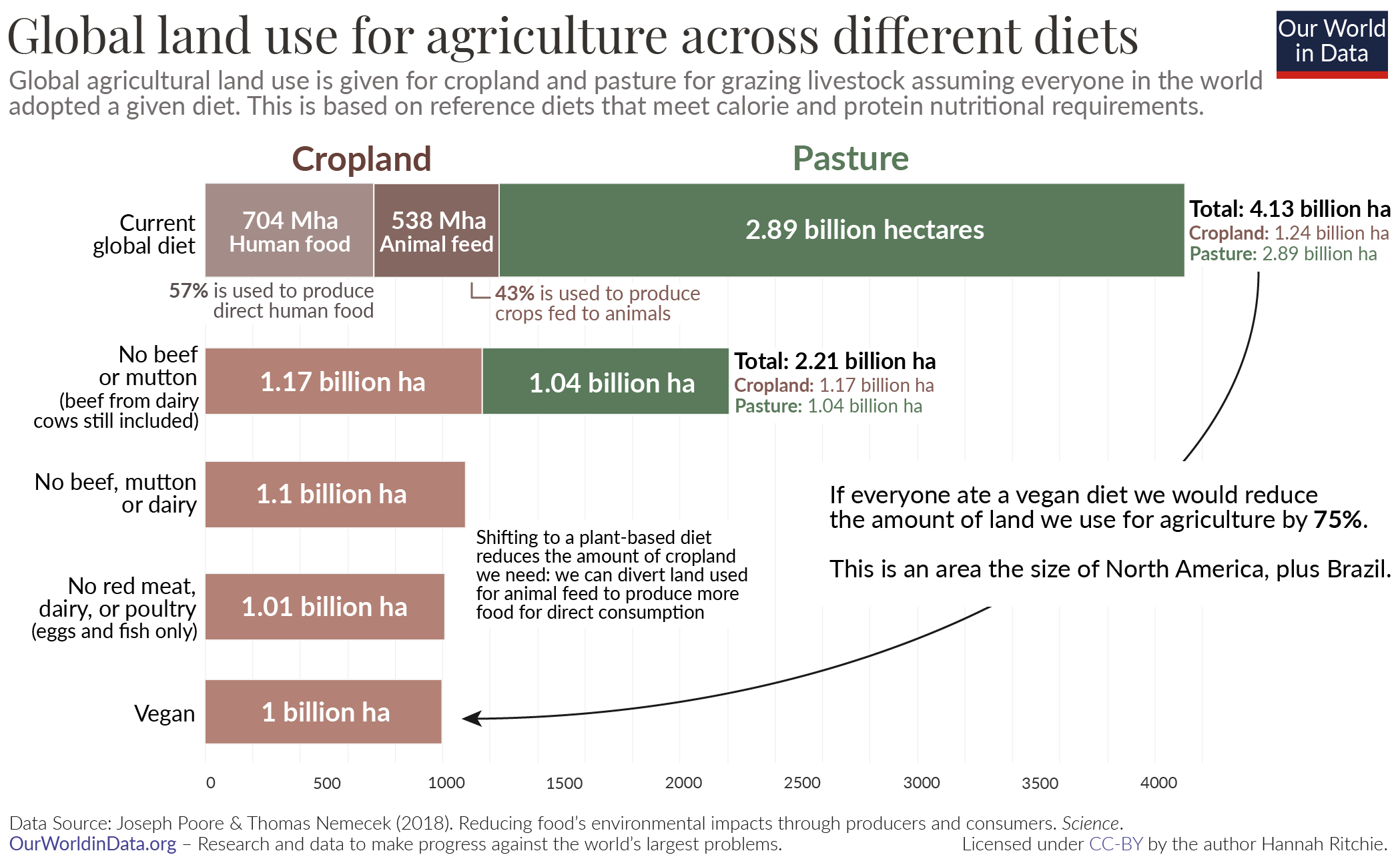
Cited data.
1. Our World In Data. Plant-based foods versus Omnivore.
If the world adopted a plant-based diet, we would reduce global agricultural land use from 4 to 1 billion hectares – Our World in Data.
strength by fitness
podcasts
recent articles
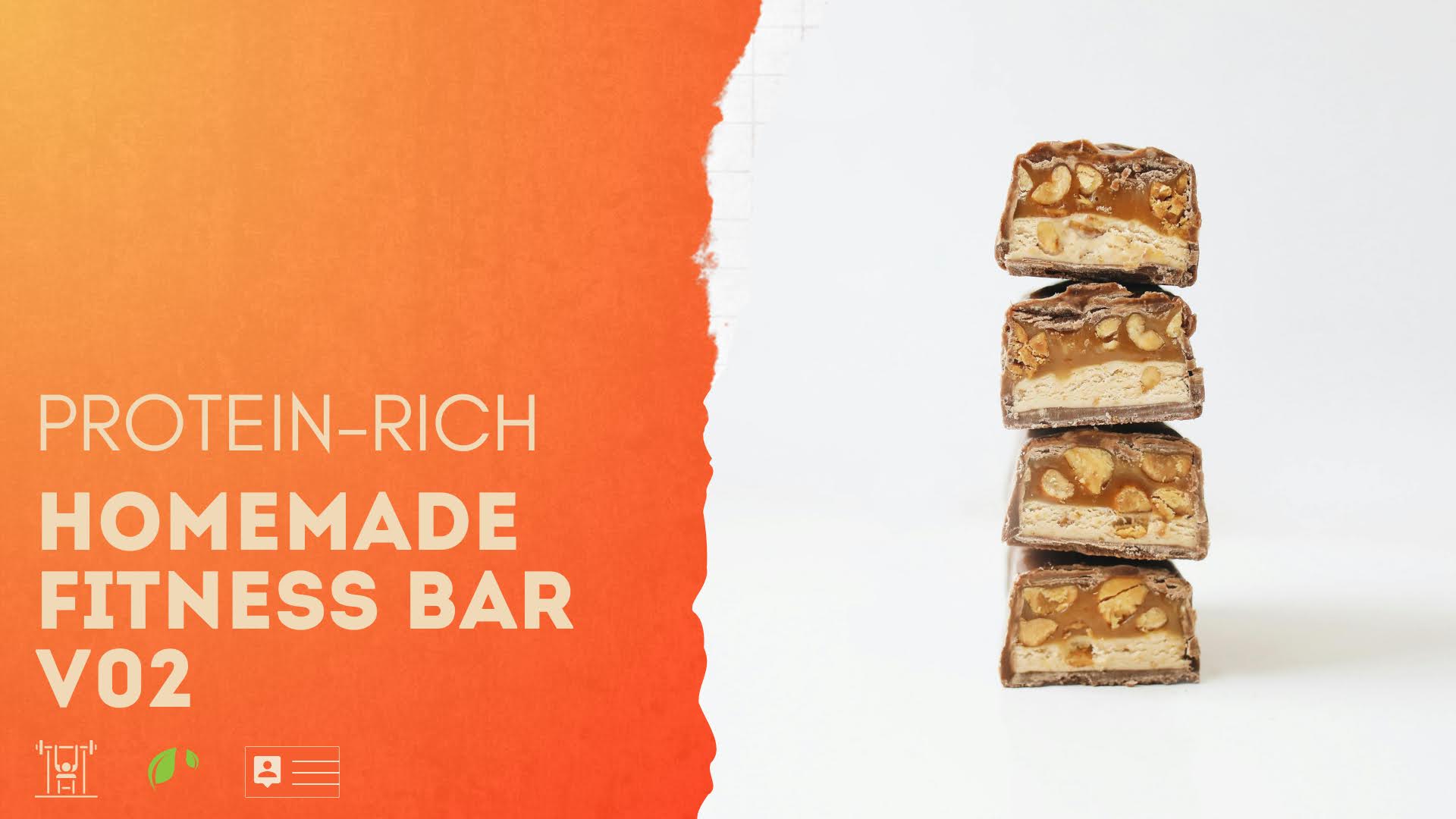
Member Exclusive: Homemade Snickers Date Protein Bar.
Welcome to Strength By Fitness Member Exclusive: Homemade Snickers Date Protein Bar.
Rich in micronutrients, 109 protein, 41 fiber, and an SPC score of 66 to 80, make this a go-to protein bar winner that is very hard to beat.
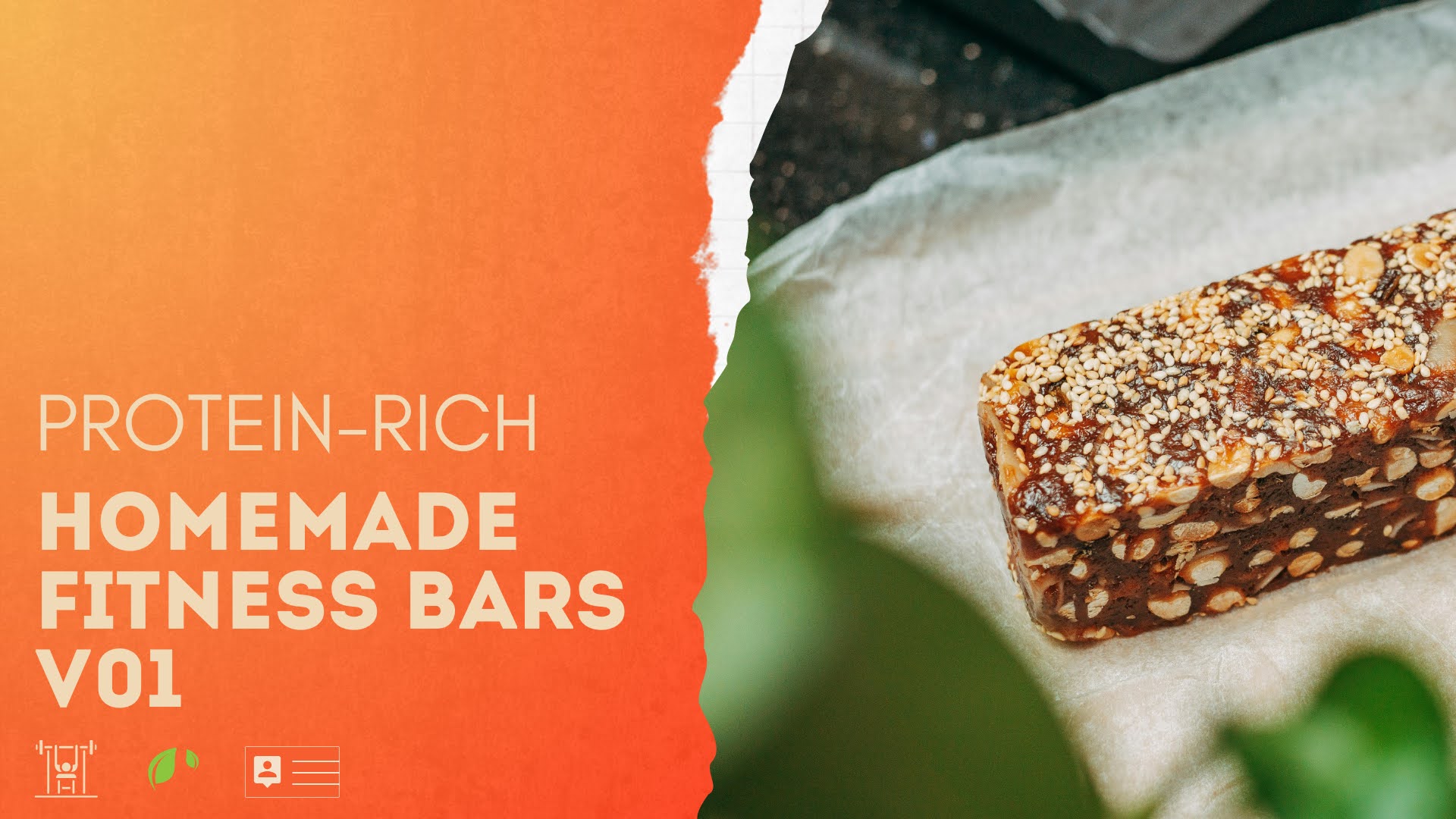
Member Exclusive Recipe: Homemade, and health friendly peanut protein bar.
Digg into Strength By Fitness homemade and health friendly peanut protein bar. This easy to make fitness bar is rich in micronutrients, fiber and protein for every unit of energy.
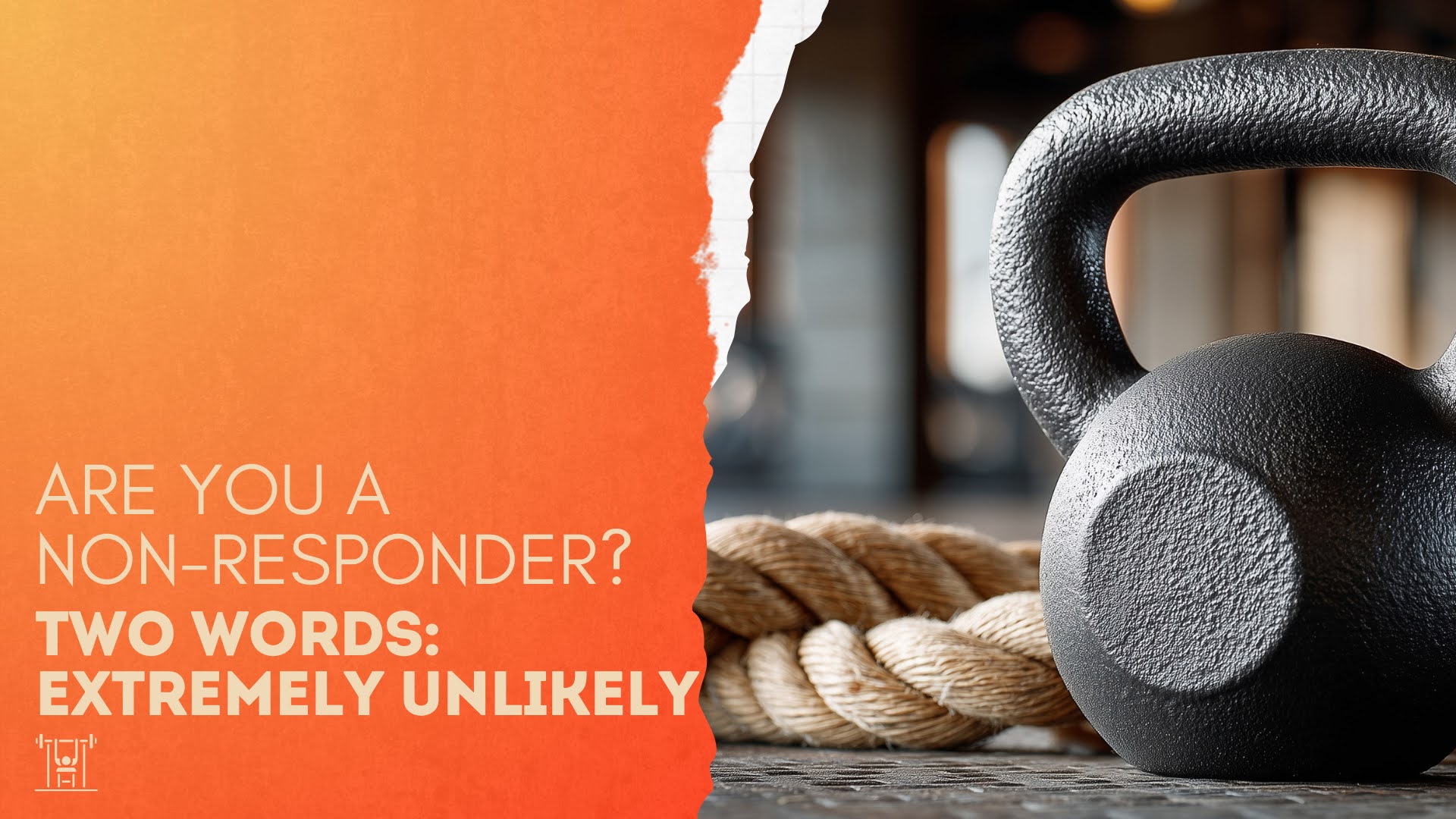
Are you a non-responder? Two words: Extremely unlikely.
In this nail biting free to read, public article, Coach Mike from Strength By Fitness answers the dreaded question, “Am I a non-responder” to exercise?
Two words is enough. Extremely unlikely. But read on to get the science too.
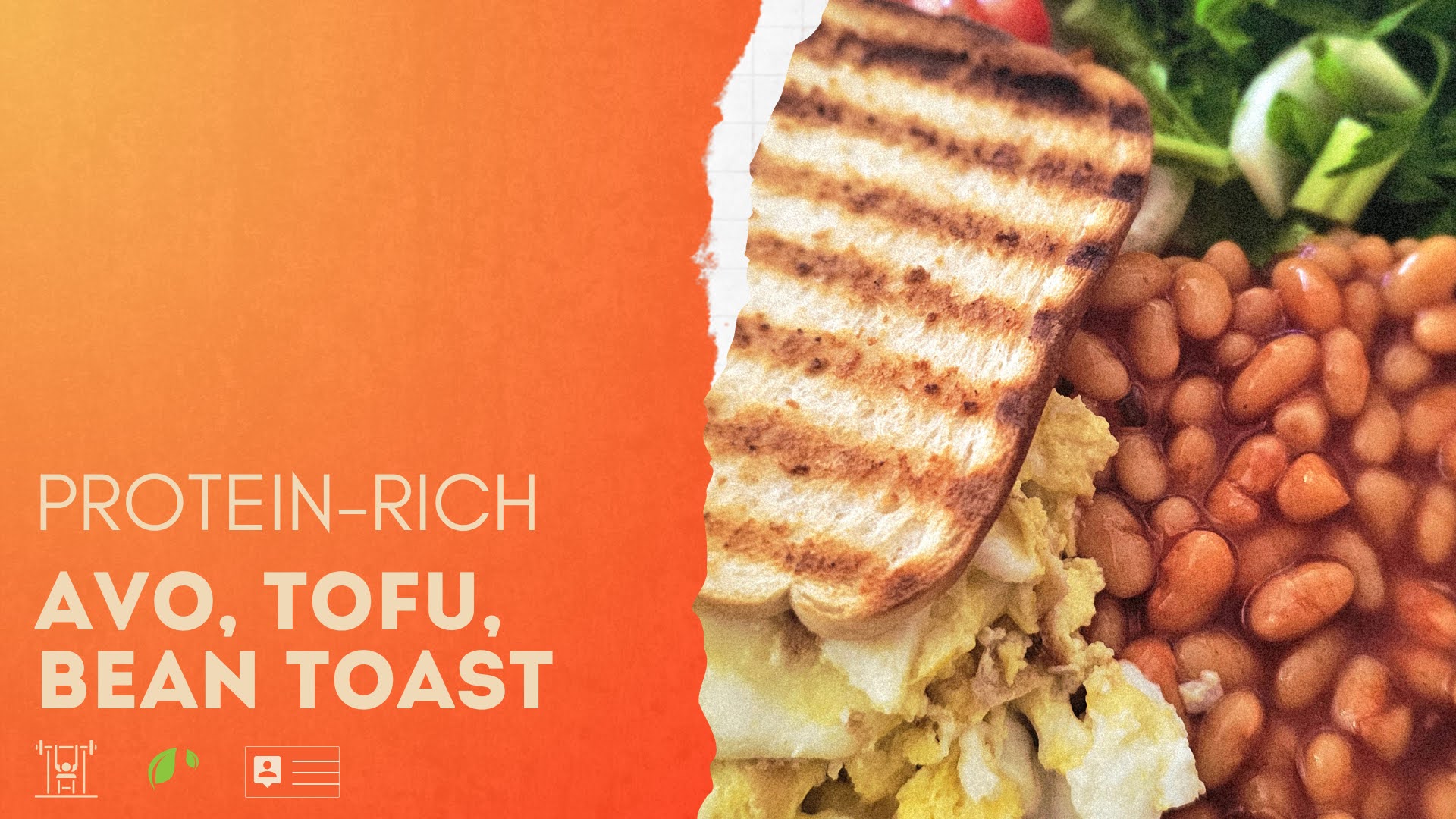
Client & Member Exclusive Recipe: Tofu, Butter bean and Black bean, Avo Toast.
What an amazing health and fitness friendly higher-SPC avo, tofu, bean toasted bread sensation from Strength By Fitness.
60 grams of protein per person and a great 51 to 65 SPC range.

Weekly Exercise, How Much Do You Need? Exclusive Member Article.
How much weekly exercise do you need?
This is a relative answer that comes down to the unique context of your lifestyle puzzle, current habits, and goals.
Read on to find out why this is nothing but great. Unlimited reading of all Strength By Fitness articles, and recipes for only 9US$ per year.
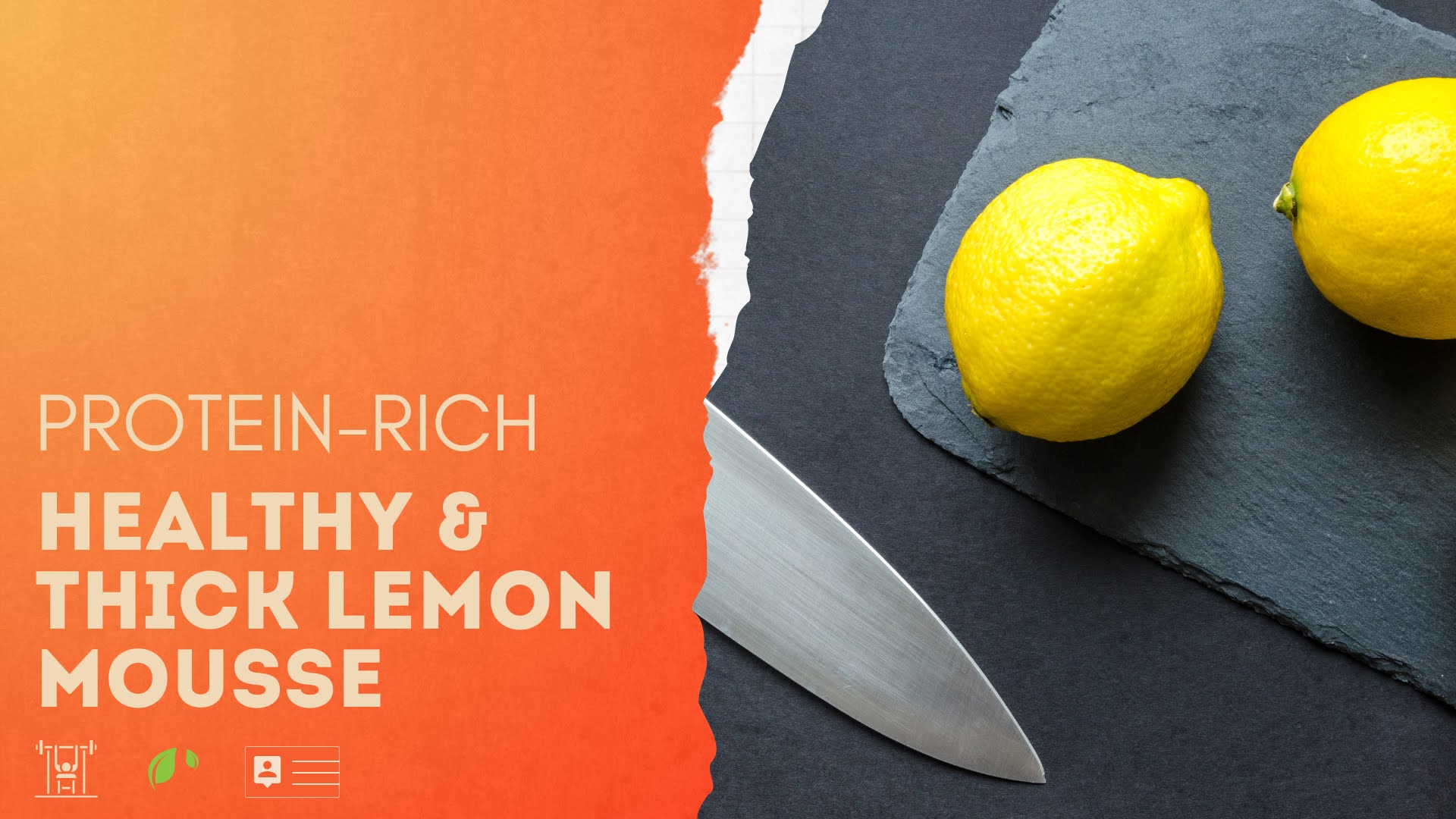
Members & Clients Recipe: Healthy & Thick Lemon Protein Mousse.. High SPC & Protein.
Exclusive Members & Clients Recipe from Strength By Fitness: Healthy & Thick Lemon Protein Mousse. High SPC: 66 to 80, with 80g of Protein.
We appreciate you
so stay healthy & never stop training
Contact
Private In-App Messaging is Available For All App + Coaching Clients
Adress
Coaching Is Available Online Via App on IOS & Google Play, and In-person, On-location.
Copyright 2026 Strength By Fitness.
